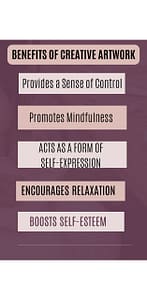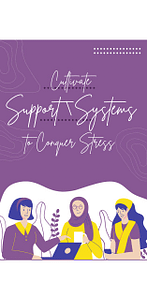Stress is a normal part of life, but prolonged exposure can lead to various health issues. To manage stress effectively, one must identify the underlying causes that trigger it. In this article, we will discuss the root causes of stress and practical strategies for conquering stress as a woman, like building resilience and coping mechanisms, prioritizing self-care, time management, empowering oneself through mind-body practices, and supporting loved ones dealing with stress and anxiety.
Understanding the Root Causes of Stress
Stress is a common problem that can arise from various sources. Identifying the root causes of stress is the initial phase of managing stress effectively. External stressors are due to events or circumstances beyond our power to influence, such as work-related pressure, family and relationship challenges, financial instability, and poor health. Internal triggers include perfectionism, high expectations, poor self-care habits, and negative self-talk.
Identifying External Stressors
We often experience external stressors due to events or circumstances beyond our power to influence. One of the most common external stressors is work-related pressure.
- Deadlines, high expectations, and office politics can all contribute to stress.
- Family and relationship challenges are other sources of external stress.
- Disagreement with loved ones, parenting challenges, or family illness can be stressful.
- Financial instability, including the constant dread of being unable to cover all expenses and the unpredictable nature of financial instability, can significantly impact an individual’s mental and emotional health.
- Poor physical health can lead to various forms of stress as well. It can make our daily activities challenging, leaving us helpless and frustrated. Chronic illnesses or pain can also cause us to feel isolated and alone, negatively impacting our mental health.
- Losing someone you love is tough. It’s normal to feel physical, mental, and emotional symptoms.
Remember, healing is a personal journey. Take all the time you need to process your emotions and seek support from friends, family, or a therapist. Self-care activities, like exercise, meditation, or relaxation techniques, can help manage stress and promote healing. Commit to these practices and enjoy a healthier, happier, and more fulfilling life.
Internal Triggers
Internal triggers, such as perfectionism, high expectations, poor self-care habits, and negative self-talk, can contribute to stress levels. Identifying these root causes can empower individuals to reduce their impacts by changing their lifestyle, seeking professional help, or using stress management techniques. Recognizing one’s limitations and asking for help when needed takes strength, and resources are available to support individuals in managing their stress.
Building Resilience and Coping Mechanism: Stress-Busting Strategies
Building resilience and developing coping mechanisms are crucial in stress management. These strategies help us bounce back from stressful situations and maintain our mental well-being.
Prioritizing Self-Care
As Kristen Lee said, “Self-care is not selfish. You cannot serve from an empty vessel.” Self-care is, therefore, not a luxury but a necessity. It’s about valuing and caring for your physical, emotional, and mental health. Here are some tips that you might find helpful in prioritizing self-care.
Setting Healthy Limits: Learning to say no when you feel overwhelmed is essential, which helps protect your time and energy.
Engaging in Regular Exercises and Relaxation Techniques: Physical activities can help reduce stress levels. Find an exercise routine that you enjoy. Incorporating relaxation methods like deep breathing or guided imagery can significantly ease your mind.
Mindfulness and Meditation can help you stay present and focused, reducing negative thought patterns that contribute to stress.
Owning a Pet: Playing with a pet triggers the release of oxytocin, a hormone associated with bonding and relaxation, which can reduce stress levels. Research has demonstrated that interacting with a pet, such as petting or playing with them, lowers the stress hormone cortisol, can help distract you from stressors, and provides a sense of comfort and companionship.
Listening to music has been shown to have a calming effect on the body and mind. Slow, peaceful music can help slow down your heart rate, lower blood pressure, and reduce stress hormone levels. The rhythmic tones and melodies can also help distract you from negative thoughts and emotions, allowing you to relax and unwind.
Creative Artwork: Engaging in creative artwork is an effective stress management technique. Art therapy, in particular, has been used to help individuals manage stress, anxiety, and various mental health challenges.
Cultivating Support Systems in Conquering Stress
Having a solid support system can be a game-changer in stress management. Here’s how you can cultivate your support system:
Seeking Help from Friends and Loved Ones: Don’t hesitate to reach out to those who care about you when stressed. They can offer a helping hand, share valuable insights, or listen attentively.
Join support Groups or Therapy Sessions: Sometimes, talking to others going through similar experiences can be helpful. Support groups or therapy sessions provide safe spaces to share feelings and learn from others.
Connecting with Like-Minded Individuals Through Hobbies or Clubs is one practical strategy for conquering stress. Engaging in enjoyable activities can relieve stress, and connecting with like-minded individuals through shared interests can foster a sense of camaraderie and belonging. It’s essential to note that stress management doesn’t entail eliminating all stressors from one’s life. It’s about learning to handle stress effectively and building resilience to bounce back from life’s challenges. You can manage stress and lead a balanced, fulfilling life.
Time Management and Organization
Effective time management and organization are practical strategies for conquering stress. They allow us to control our time, tasks, and responsibilities, reducing feelings of overwhelm and anxiety.
Setting Realistic Goals and Priorities
The process of establishing practical objectives and determining the most essential tasks is crucial when it comes to managing your time efficiently. Here’s how you can do it:
Breaking Tasks into Manageable Chunks: Dividing complex projects into smaller, more achievable tasks can make them feel less overwhelming and more manageable.
Creating Structured Daily Routines: Routines can provide structure and predictability to your days. They help ensure that you allocate time for all essential tasks and activities.
Using Productivity Tools: Technology can be a great aid in managing your time. Productivity tools like calendars, task managers, or note-taking apps can help keep you organized and focused.
Learning to Delegate and Say No: You don’t have to do everything yourself. Delegate tasks when possible, and learn to say no to tasks that are not priorities or align with your goals.
Adopting Healthy Habits
Adopting healthy habits can help improve your productivity and reduce stress. Here are some habits to consider:
Maintaining a Balanced Diet and Enough Sleep: To sustain high energy levels and remain focused throughout the day, it is essential to maintain a healthy and balanced diet and get sufficient rest and sleep.
Limit Screen Times and Digital Overload: Excessive use of electronic devices can cause exhaustion and strain, impacting our overall well-being. Set boundaries for screen times and take regular breaks.
Establishing a Calming Bedtime Routine: A calming bedtime routine can help you unwind and ensure a good night’s sleep, preparing you for the following day.
Remember, effective time management and organization are about more than cramming as many tasks as possible into your days. They’re about making the best use of your time to achieve your goals while caring for your well-being. These techniques can efficiently organize your schedule, alleviate anxiety, and attain a harmonious and gratifying lifestyle.
Enhancing Emotional Resilience
Maintaining emotional resilience is a vital component of effective stress management. It involves adjusting to challenging circumstances and recovering from setbacks with resilience and determination. Here’s how you can enhance your emotional resilience:
Practicing Positive Thinking
Positive thinking can significantly impact your stress levels and overall mental health. Here’s how you can cultivate it:
Challenging Negative Thoughts and Beliefs: When negative thoughts arise, challenge them. Ask if you are basing those thoughts on facts or just assumptions.
Cultivating Gratitude and Optimism: Regularly express gratitude for what you have. Be optimistic, even in challenging situations.
Learning to Let Go of Controls: Understand that you can’t control everything. Learn to let go and focus on what you can control.
Developing Emotional Intelligence
Being emotionally intelligent means being able to identify, comprehend, and control your feelings, as well as the feelings of those around you are some of the practical strategies to conquer stress. Here’s how you can develop it:
Recognizing and Managing Emotions Effectively: Learn to identify your emotions and understand what triggers them—practice techniques to manage your emotions effectively.
Building Empathy and Understanding in Relationships: Understanding others’ perspectives and feelings can help build stronger, more empathetic relationships.
Seeking Professional Help When Needed: If you’re struggling with your emotions or mental health, don’t hesitate to seek professional help. Remember, enhancing emotional resilience takes time and practice. With determination and consistent effort, you can improve your capacity to manage stress and recover from challenging situations, which, in turn, can help you lead a more balanced and fulfilling life.
Empowering Yourself Through Mind-Body Practices
Empowering yourself through mind-body practices can be a game-changer in the stress management journey. These practices help you relax, unwind, and connect your physical health with your mental well-being. Here’s how you can incorporate them into your routines:
Engaging in Relaxation Techniques
Relaxation techniques are a great way to release tension and achieve a state of increased calmness. Here are some techniques you can try:
Regular Deep Breathing Exercises can effectively soothe your mind, alleviate anxiety, and induce relaxation. These tasks are simple to complete and can be done anywhere and anytime.
Progressive Muscle Relaxation: One effective relaxation technique is to tense and release each muscle group, which allows you to tune into physical sensations and reach a state of profound relaxation.
Visualizations and Guides-Imagery: These techniques involve visualizing peaceful places or situations. They can help you focus your mind and promote relaxation.
Exploring Holistic Approaches
Holistic approaches consider your overall well-being, including physical, mental, and spiritual health. Here are some holistic practices you can explore:
Yoga and Tai Chi: Blending physical movements, controlled breathing, meditation, and yoga and tai chi offer holistic benefits that alleviate stress and promote overall well-being.
Acupuncture and Aromatherapies: These traditional healing practices can help balance your body’s energy and promote relaxation.
Reiki and Energy Healing involve channeling healing energy through the hands. They can help reduce stress and promote healing. Remember that managing stress is not a one-time task but a continuous journey. Identifying what works best for you and integrating those techniques into your daily routine is key. By practicing mind-body methods, you can empower yourself to take charge of your stress levels and achieve a more balanced and tranquil life.
Supporting Loved Ones Dealing with Stress and Anxiety
Supporting a loved one in dealing with stress and anxiety can be challenging. It’s essential to be there for them and offer them support. Here are some ways to support a loved one dealing with stress and anxiety:
Active Listening: Listen to them attentively, show empathy, and provide a safe space for them to express their feelings.
Offering Reassurance: Let them know that you care about them and that they are not alone. Offer them words of encouragement and positive affirmations.
Encouraging Them to Seek Professional Help: If their stress and anxiety are severe, encourage them to seek professional help.
Caring for Yourself: Caring for yourself is crucial to supporting loved ones dealing with stress and anxiety. Ensure you’re getting enough rest, engaging in self-care activities, and seeking support when needed.
Final Thoughts
Stress is a common problem that can lead to various health issues. We can manage stress and lead a balanced, fulfilling life by identifying the root causes of stress, building resilience, and developing coping mechanisms. Practical strategies like prioritizing self-care, cultivating support systems, and effective time management can help us conquer stress and achieve our goals. Remember, stress management is a personal journey, and resources are available to support individuals in managing their stress levels. Prioritizing your happiness and well-being is crucial to maintaining a well-balanced life. With these practical strategies, you can navigate life’s challenges with resilience and strength, finding peace.
This website may contain affiliate links, and we may earn a commission for any purchases you make on affiliate websites using these links. Our affiliates include Clickbank. Rest assured, these affiliate links come at no additional cost to you.




